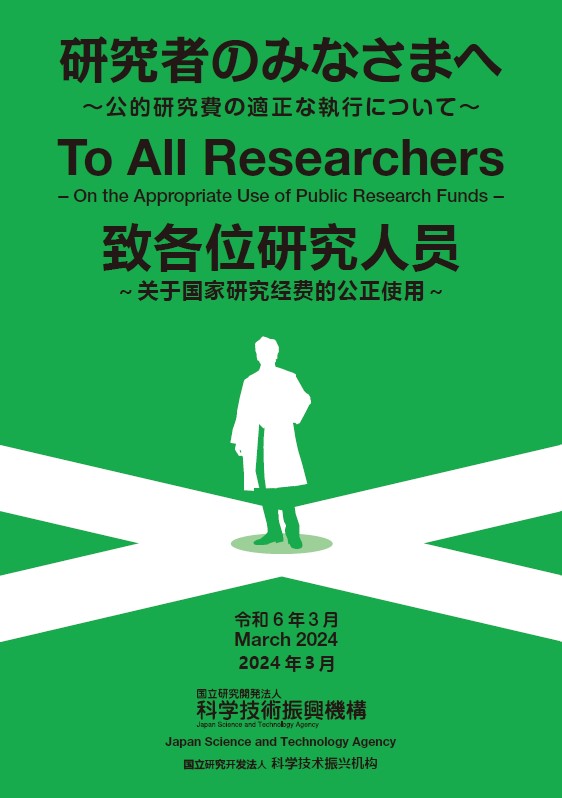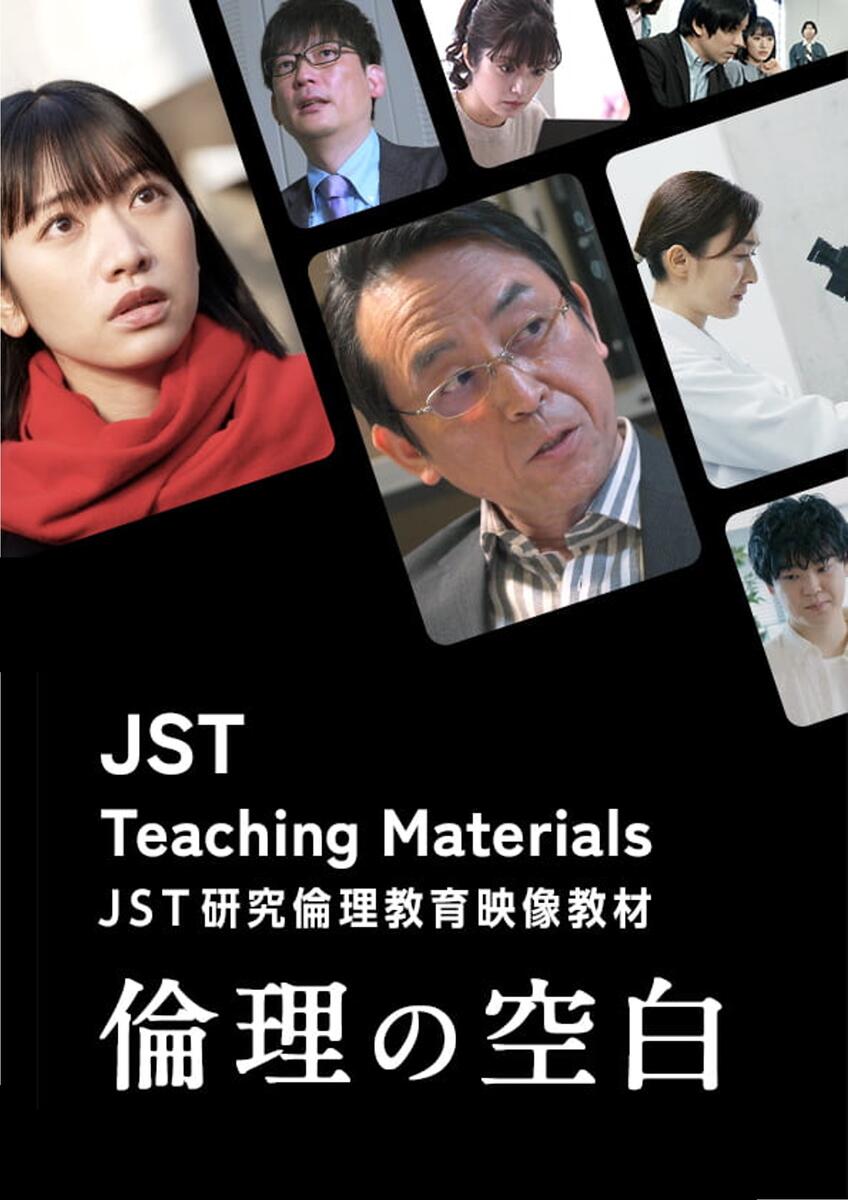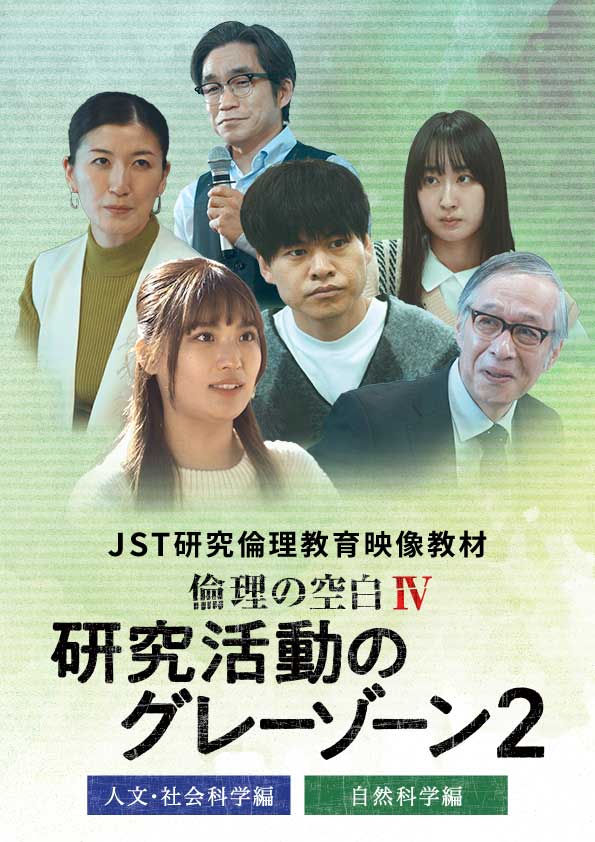Teaching Materials
Teaching Materials
Please use them for research ethics education at universities and companies.
JST Video materials for research ethics education - Gaps in Ethics
The Japan Science and Technology Agency (JST) is producing instructional videos on research ethics based on the research environment and situation in Japan. The videos raise the topic of recent research misconduct and are being produced as a series while taking into consideration trends in research integrity and research ethics in Japan and abroad.These instructional videos are being produced as part of a research integrity promotion project.
■About video materials:
These instructional videos are made with the aim of enhancing the ethical consciousness required by researchers in their daily research activities.The instructional videos are interactive materials that allow researchers to learn while discussing tangible hypothetical situations, so that they can think about responsible actions if they encounter an ethical issue in their own research activities.As more people start teaching themselves research ethics by acquiring knowledge through methods such as e-learning and textbooks, using these instructional videos in combination is expected to make their education more effective.
■Precautions for Use
This instructional material may be used for research ethics education at universities and research institutions without permission or application procedures.
It is prohibited to (1) use this video material for rental business, (2) reproduce it for purposes beyond personal use, or (3) make the contents available for transmission via networks, etc., without the permission of the right holder as permitted by Copyright Act.
In addition, it is prohibited to alter, modify, change, unprotect, decompile or reverse engineer this video material.
Produced and copyrighted by The Japan Science and Technology Agency (JST)
THE LAB (Interactive movie for promotion of research integrity)
"THE LAB : Avoiding Research Misconduct" is an interactive video material produced by the Office of Research Integrity, USA (US ORI). This is available in English, Japanese, Spanish and Chinese.
In an effort to disseminate research ethics, JST has received a license from ORI to create a Japanese version of "THE LAB", a video educational materials developed by ORI.
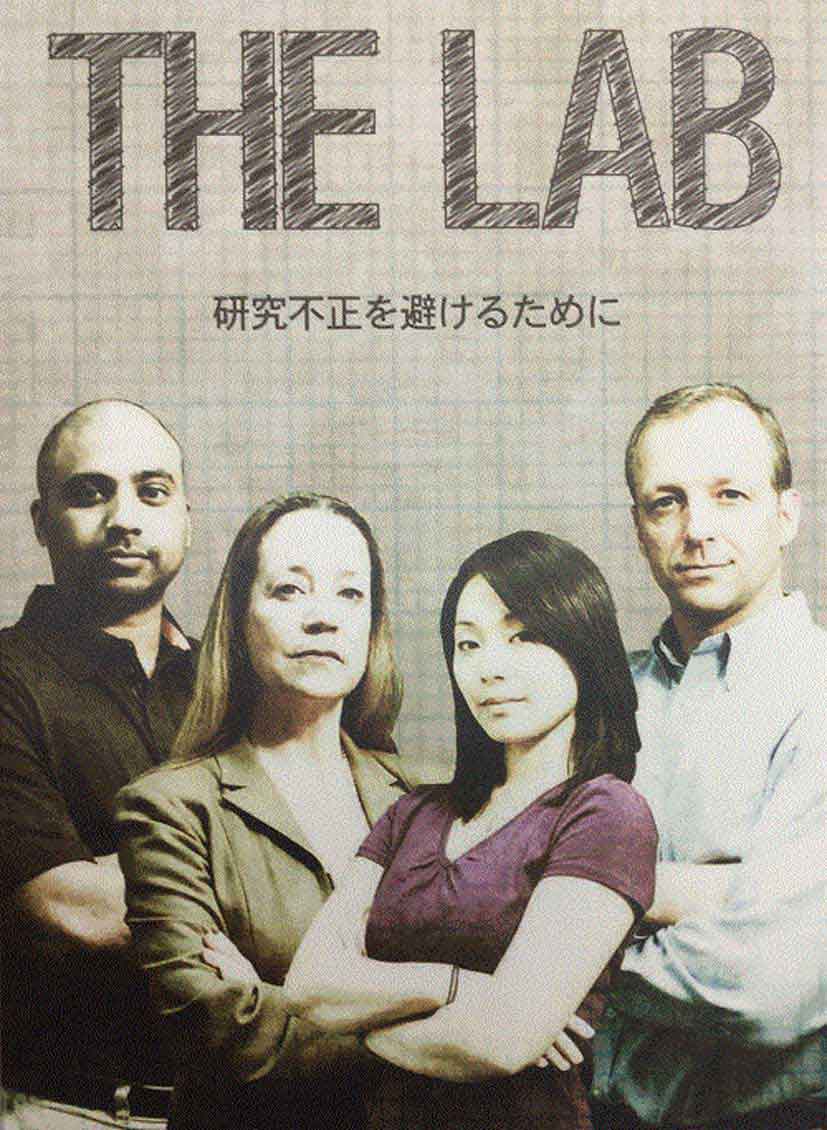
Conduct for Responsible Research Activities (Booklet created by JST)
JST has summarized what is research misconduct (fabrication, falsification and plagiarism) in research activities and preventive measures against misconduct in an easy-to-understand manner.
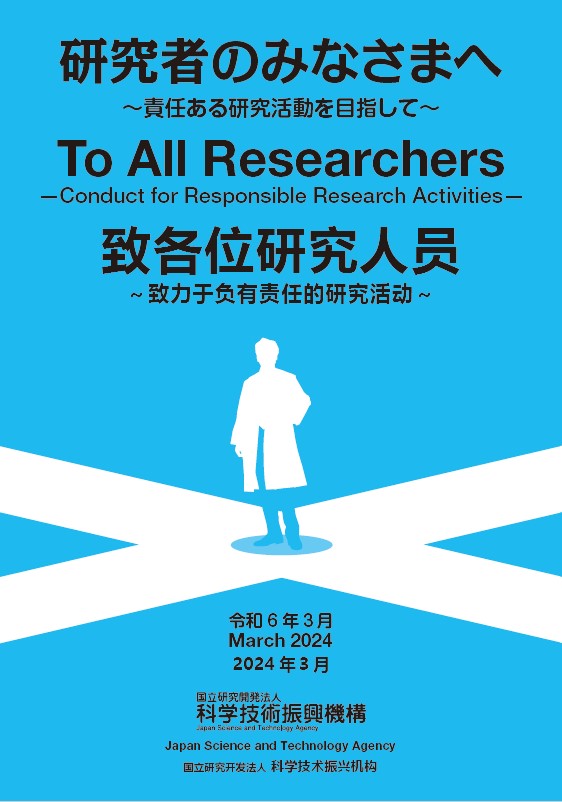
On the Appropriate Use of Public Research Funds (Booklet created by JST)
JST has summarized the types and examples of misappropriation of research funds and preventive measures against misconduct in an easy-to-understand manner.
